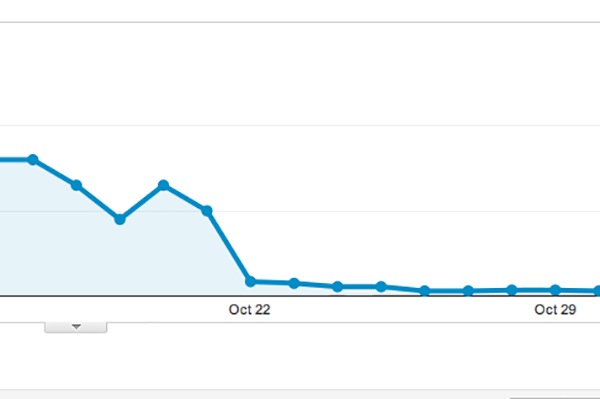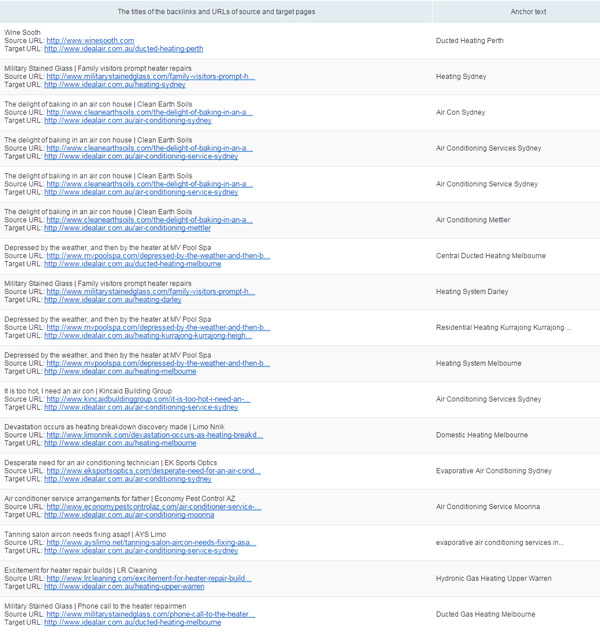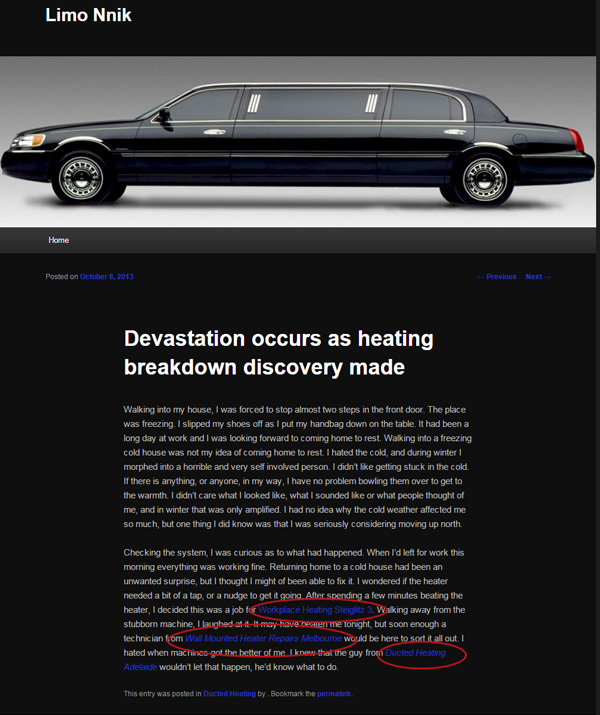Published: May 07, 2015 Last Updated: February 09, 2022
Why Have Your Website Rankings Suddenly Disappeared?

Have you noticed that your once successful website has suddenly taken a dive? Has it suddenly stopped generating the webforms and calls it once did? Or maybe you noticed that all those keywords you once ranked for are a distant memory? If so, I can assure you that you are not alone. There are plenty of unhappy Business Owners out there, who had great performing websites that suddenly lost all their rankings.
So what happened? Why isn't your website showing in Google any more?

Chances are your website has either been hit by an Algorithm change by Google, or they have taken a "Manual Action" against you. So what does this mean?
Google Algorithm Updates - Have you heard of Panda or Penguin?
Google is continually tweaking their search Algorithm that ranks websites to keep ahead of the spammy SEO techniques out there. If they didn't, we'd end up with a list of spammy, worthless websites listed every time we did a search; and that helps no-one. Two of their key projects for doing this are called Google Panda and Google Penguin.
What is Google Panda?
Google Panda is aimed at weeding out websites that "are low quality or thin". Like all things Google, they like to keep things vague. Essentially by low quality or thin, they mean content that has either been copied from another website (even if changed only slightly) or includes spammy techniques such as keyword stuffing.
The main aim behind this project was to try and get rid of spammy sites that just scraped content from other sites. So chances are this isn't the reason for your problem.
What is Google Penguin?
Google Penguin is aimed at all those spammy links out there. Google wants links to your website to have been obtained through "natural methods". By "natural methods", they mean that someone likes your website so much that they want to have a link to it from their own website. This is generally in the format of someone referencing your website for information they have used or as a business that they recommend.
So what is a "spammy link"? These are links that have been obtained through spammy methods such as link exchanges, link wheels, comment spam, article spam etc. Find out more about Link Spamming .
Unfortunately, Link Spamming is one of the most commonly used techniques by many of the unscrupulous SEO Companies out there. Sure it worked, but it wasn't how Google wanted it to work. The bad news is that as Google tweaked their Algorithm with Penguin, they found out many of these websites and started penalising them in the rankings.
This is most likely what happened to your website.
What is a "Manual Action" by Google?
Whereas the majority of your website rankings in Google are handled automatically by their Algorithm, sometimes one of their Webspam Employees may take a "Manual Action". If they identify your website is using spammy techniques to rank well, they will manually drop it down their rankings.
If your website does suffer a "Manual Action", Google will inform you through your websites' Webmaster Tools message centre. The problem here is that most Business Owners don't know what this is, so would never know that they've suffered this.
This is also a highly likely reason for why your website has suddenly dropped.
Common Link Spamming techniques
To help you understand what the most likely cause of your website rankings disappearing, lets look at a few examples. I'm continually coming across some real dodgy link spamming techniques, so thought I'd share a few with you.
Please Note: These examples are definitely not for our Client Websites. We despise this technique and have always focused on on-site optimisation instead of link building.
First, here is a report that lets us check all the links to any website that we want to check. It shows the website page it comes from and which page it is going to, as well as the words used in the hyperlink.

Now not all of these links are spammy, but believe me, the vast majority are. If we follow one of these dodgy links we'll find this.

This is what we call "Article Spamming". They have written a nonsense article about air conditioning breaking down and then submitted it to a website full of different articles (most likely the SEO Company owns this website for this purpose). You'll notice at the bottom of this keyword stuffed article that they have added yet more keywords and linked these to their website. Ta Dah! Now they have another link to their website.
Moving away from this website example, let's look at another great example where the dodgy SEO in question decided to use "Comment Spam".

These really annoy me. Some person has genuinely written an article about something they are passionate about and then along comes dodgy SEO and posts a comment they couldn't care less about just to add a link back to their website. I've even seen these where the article writer has responded to the comment, totally unaware that this is purely spam and the person posting it has zero interest in what they are so passionate about.
There are other forms of linking spam, but these are the most common.
Does this look like something that has been done to your website? If so, you have your answer as to what happened to your website.
Recovering from a Google Penalty or Manual Action
The good news is that you can recover from one of these events. The bad news is that it will take some effort and time to recover. You can do it yourself, but you really should look at hiring a reputable SEO Company to do it for you (just not the dodgy one that got you there in the first place).
On a final note.
Even if your website hasn't suffered a drop; if you know that it has been optimised using link spamming and other spammy techniques, I recommend you act sooner rather than later. Don't wait for Google to finally catch up with you. As they say, it isn't "IF" but "WHEN" they catch up with you. Are you prepared to take the risk of losing all that business generated by your website overnight?

